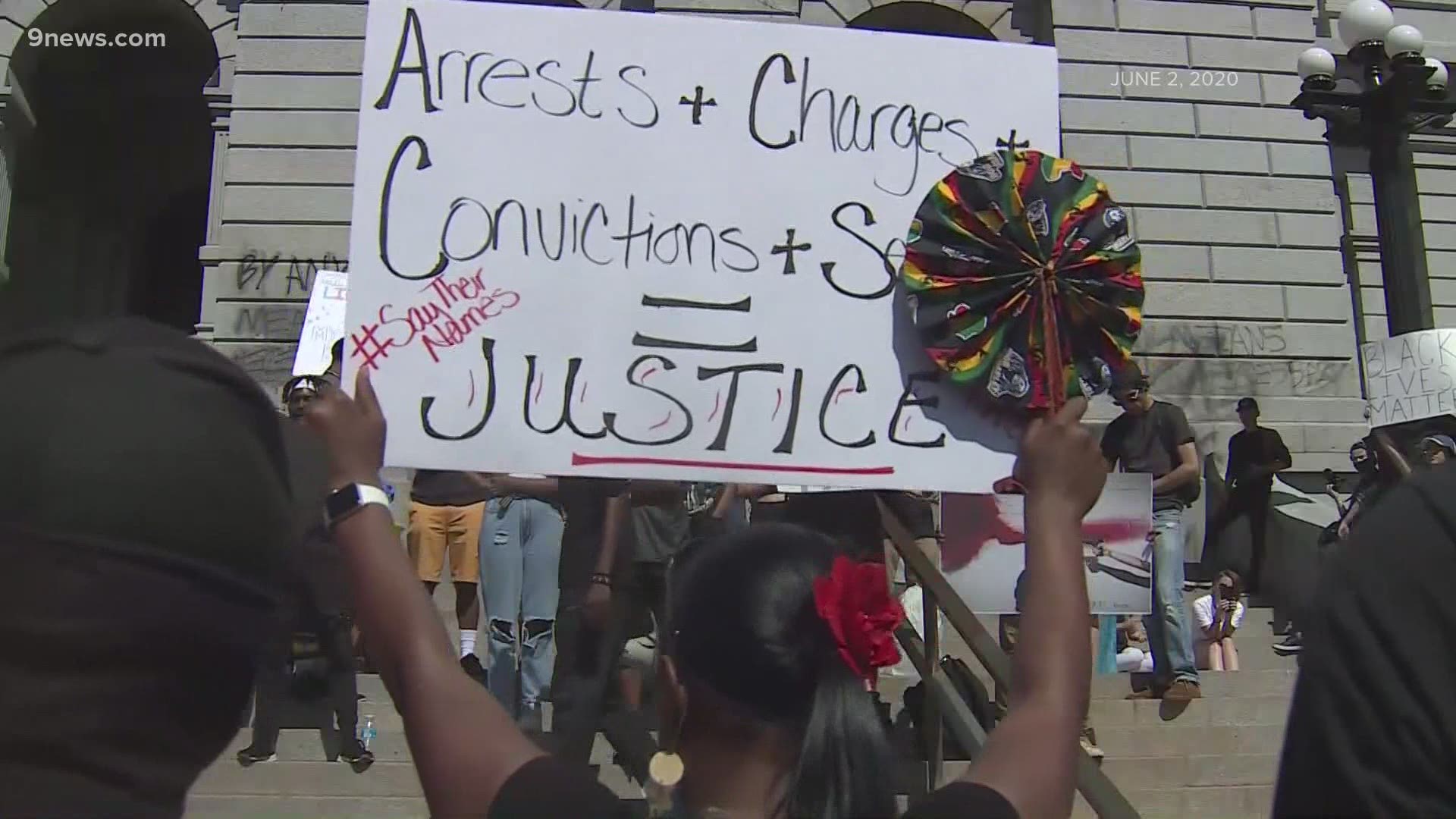DENVER — On June 19, 2020, after weeks of daily protests at the Colorado State Capitol against police brutality and racism following George Floyd's murder, Gov. Jared Polis signed into a law a broad police accountability bill called Enhance Law Enforcement Integrity.
> Video above from April 21: Police accountability bill passed Colorado's House Judiciary Committee.
The bill drew bipartisan support in both chambers and was supported by prosecutors and defense attorneys alike. Even sheriffs, police chiefs and the police union didn’t oppose the legislation — saying in a statement they wished they would have won a few more amendments, but they “recognize social justice holds an important place in our society, including policing."
Here's an overview of what the bill did.
> This story is powered by COLab, the Colorado News Collaborative. 9NEWS joined this historic collaboration with more than 40 other newsrooms across Colorado to better serve the public.
Body cameras
By July 1, 2023, all police and sheriff's departments are required to equip their officers with body cameras. Officers and deputies are required to record all traffic stops and most of their interactions with the public. If an investigation reveals that an officer tampered with or failed to activate their dashboard or body camera, the officer is subject to disciplinary action, including suspension, termination or revoking of the officer's certification.
In most cases, if a complaint of officer misconduct is filed, the law enforcement agency must release to the public all unedited dash camera or body camera footage within 21 days. If a family member or legal guardian requests the footage, it must be released to them 72 hours before being released to the public.
Any video that "would substantially interfere with or jeopardize an active or ongoing investigation" must be released no later than 45 days after the initial complaint is received.
Transparency in law enforcement reporting
Under the new law, law enforcement agencies are required to collect and report to the state a lot more information about their operations. That includes demographic data on everyone officers pull over or stop on the street; detailed accounts of all use of force incidents by a police officer that result in death or serious bodily injury; and all instances in which an officer resigns while under investigation for misconduct.
By July 1, 2023, the state's Division of Criminal Justice must create an annual report and statewide database containing this information. The database must be searchable by the public, and must include information about officers whose certification has been revoked.
Any law enforcement agency that fails to participate in this reporting risks losing its funding.
When an officer loses certification
Any officer who is found criminally liable, convicted of a crime or pleads guilty to a crime involving the unlawful or threatened use of force — including failure to intervene when seeing another officer breaking the rules — will be stripped of certification.
The Peace Officer Standards and Training board, (P.O.S.T.), which is responsible for certification, must develop a community outreach program that informs the public of its duties and practices. Additionally, by Jan. 1, 2022, the P.O.S.T. must create and maintain a database with information related an officer's untruthfulness, failure to follow training, or disciplinary action.
These policies follow a 2019 law that allows the P.O.S.T. board to revoke an officer's certification if they're found to have lied in court or during an investigation.
Police actions during protests
Officers cannot:
Discharge less-than-lethal projectiles (like rubber bullets) in a manner that targets anyone's head, hips, or back.
Discharge less-than-lethal projectiles (like rubber bullets) randomly into a crowd.
Use chemicals or irritants (like pepper spray or tear gas), without first clearly ordering people to disperse, and giving protesters enough time and space to do so.
Legal action
Officers can be sued individually for misconduct — and will be on the hook for up to $25,000 or 5 percent of the judgment, whichever is less. In order to reach that judgment, a court has to find that the officer did not act in good faith. Officers also must have a legal basis for establishing contact with someone, including stopping them on the street or pulling over vehicles in traffic.
Additionally, the attorney general will have the power to investigate police departments for civil rights violations.
Use of force
Officers cannot:
Use deadly force to arrest someone on suspicion of minor or non-violent offenses.
Use carotid chokeholds.
Use deadly force unless there is proof of imminent threat of danger and there is a substantial risk that the suspect will hurt others.
Officers also have a duty to intervene and report on another officer from using force in any of the above ways. Any officer who fails to intervene or prevent such use of force commits a Class 1 Misdemeanor.
Changes the "fleeing felon" statute
The new law modifies the state’s “fleeing felon” statute, which made it legal for police to shoot someone running away if they were suspected of a felony and were known to have a weapon. Under the revised policy, officers can only use deadly force if they believe the person fleeing is about to use a weapon against them or others to make their escape.
> Top stories from 9NEWS curated daily just for you! Sign up for the 9NEWSLETTER right now to get can’t-miss stories, Next and Broncos content, weather and more delivered right to your inbox.
SUGGESTED VIDEOS: Politics

